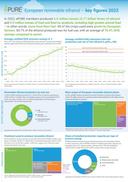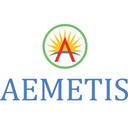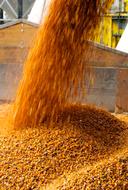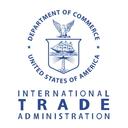European renewable ethanol association (ePURE) members produced produced 5.9 million metric tons of food and feed coproducts and 4.5 million metric tons of ethanol in 2022, according to an audit released Sept. 6.
USGC’s Southeast Asia and Oceania office recently held a Philippine DDGS Opportunity Tour, in which experts from around the world discussed ways to optimize Philippine animal feed rations, including DDGS.
Sugar Valley Energy, a subsidiary of California Ethanol & Power LLC, and STARS Technology Corp. are collaborating to delploy hydrogen production technology at SVE’s planned, fully permitted biorefinery in California.
Fluid Quip Technologies has announced that its patented Distillers Corn Oil (DCO) Technology is achieving record distillers corn oil yields for Ace Ethanol in Stanley, Wisconsin, with increases of over 20 percent above historical rates.
Braskem and SCG Chemicals are forming a joint venture that aims to produce bio-ethylene from bio-ethanol dehydration and to commercialize I’m green biobased polyethylene (PE), using the EtE EverGreen technology.
In late July, the U.S. Grains Council’s Mexico office sponsored a pet food seminar where industry representatives in the country learned more about the use of sorghum and DDGS as ingredients for pet food.
Fluid Quip Technologies announced on Aug. 9 that it will provide the world’s first wheat-based Maximized Stillage Co-products (MSC) system, to Ensus U.K. Limited’s ethanol facility in Teesside, a subsidiary of CropEnergies AG.
Aemetis Inc. has close its second $25 million, 20-year term loan guaranteed by the USDA for a total of $50 million of Aemetis Biogas project financing arranged by Greater Commercial Lending in the past nine months.
In June, Braskem concluded a 30 percent increase in the production capacity of its biobased ethylene plant, located in the Petrochemical Complex of Triunfo, Rio Grande do Sul, Brazil. The company’s biobased ethylene is made from sugarcane ethanol.
The USDA recently released its Grain Crushings and Co-Products Production Report for July, reporting that corn use for fuel ethanol production in May was down when compared to the same month of last year.
HYCO1 Inc. has entered into a carbon dioxide supply agreement with Kansas Ethanol for the planned construction of a biogenic carbon dioxide utilization facility that will initially proudce synthetic bas lubricating oils and low-carbon jet fuel.
The potential demand for ethanol plant CO2 is growing, and a DOE research consortium exploring e-fuels could broaden an already promising spectrum of transformation prospects.
Green Plains Inc. has announced a technology collaboration with Equilon Enterprises LLC (Shell) under which Fluid Quip Technologies’ precision separation and processing technology (MSC) can be used with Shell Fiber Conversion Technology.
The U.S. exported 113.19 million gallons of ethanol and 958,386 metric tons of distillers grains in May, according to data released by the USDA FAS on July 6. Ethanol exports were down, while distillers grains exports were up.
Summit Carbon Solutions has reached a major milestone in voluntary easements, signing 70 percent of the route in South Dakota and project wide, while continuing to partner with more landowners every day.
The U.S. Grains Council's Southeast Asia and Oceania office is working to increase the market penetration of coarse grains and co-products, such as DDGS, in the growing shrimp and talapia feed segments.
Aemetis Inc. has announced that its Aemetis Biogas subsidiary is operating the Central Dairy Project production facilities 24 hours per day, seven days per week, and exceeded the RNG production plan by approximately 20 percent during Q2 2023.
To provide timely U.S. grains information to Chinese end users, the U.S. Grains Council’s Beijing office joined the U.S. pavilion at the 2022/23 China Animal Husbandry Expo to promote U.S. corn, sorghum and DDGS.
The USDA recently released its Grain Crushings and Co-Products Production report for June, reporting that corn use for fuel ethanol production in April was down when compared to both the previous month and the same month of last year.
The U.S.Grains Council is engaging Mexico's aquacutlure industry through a series of face-to-face meetings, workshops and trade team visits, resuling in the purchase of HighPro DDGS in both 2022 and 2023.
The ethanol industry has a role to play in the emerging SAF indsutry through both ethanol-to-jet technologies and the supply of distillers corn oil feedstock.
The rise of renewable diesel production—and what’s coming with SAF—is elevating demand for distillers corn oil. New technologies could push DCO values even further.
A new technology developed by Proteum Energy could use ethanol as a feedstock for producing hydrogen, a very real contender in the hard-to-electrify sector.
ICM is leveraging whole stillage separation to improve DCO gains while bringing energy usage down through a more dry cake.
Summit Ag Investments’ ethanol plant, Amber Wave, is in the process of becoming the largest wheat protein producer in North America, while continuing to make low-carbon fuel. The food-versus-fuel debate has aggravated the ethanol industry for years, in spite of the fact that ethanol plant coproducts feed animals across the country and around the world. Some producers even consider feed to be their main product—ethanol being second—and one U.S. plant is now finding new purpose as a food ingredient producer while also creating ethanol from wheat starch.
In today’s volatile commodity market, ethanol producers are diversifying corn oil production to increase profits by upgrading their commodity DCO to a cleaner oil, TruDCO—a low-impurity, low-moisture, and low carbon corn oil.
Production and use of renewable ethanol from ePURE members reduced greenhouse gas (GHG) emissions by an average of 78.4 percent when compared to fossil fuels in 2022, according to newly certified data.
The global merchant CO2 industry supports about 22 million metric tons of consumption annually. The U.S. is reponsible for 40 percent of that volume, with the ethanol indsutry announting for the highest percentage of merchant CO2 supply.
The International Trade Administration has announced it will host a roundtable discussion on June 29 focused on challenges and opportunities for strengthening the supply chain and export competitiveness of the U.S. hydrogen industry.
The U.S. exported 125.69 million gallons of ethanol and 777,617 metric tons of distillers grains in April, according to data released by the USDA Foreign Agricultural Service on June 7. Exports of both products were down.
Advertisement



























